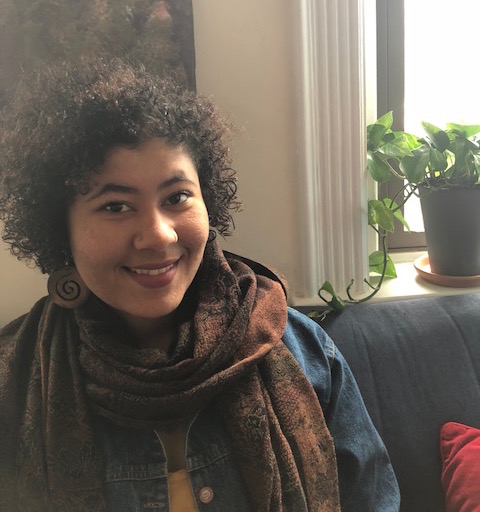Rachel Domond is a third year Sociology undergraduate student and former ROUTES co-op with Dr. Sharon Harlan. The Research Opportunities for Undergraduates: Training in Environmental Health Sciences (ROUTES) program aims to tip the scales by offering support and experience that will help students pursue further education and research careers in the environmental health field with a particular focus on issues of urban health, health disparities, and environmental justice.
Can you describe your current project(s)?
I’m currently a research assistant in SSEHRI’s Social Equity and Environmental Justice Lab. The main purpose of our current project is to shed light on the perspectives held by residents and community groups in urban settings around water system sustainability in their communities. We hope to gain a better understanding of what community members believe to be the most significant barriers to sustainability as they relate to water, and how sustainability can best be achieved, whether that be socially, economically, environmentally, or a combination. To do so, we conducted interviews with over 40 organizations working on water-related issues in 8 regions of the country to collect a wide array of perspectives.
What is the most exciting or interesting part of doing this work?
The most exciting aspect of this work, to me, is being able to collect and work closely with the community narratives that are so often marginalized. However, I think it’s extremely important to note what kinds of “community narratives” are elevated in this kind of research, repeatedly; most notably, those of the more privileged non-profits that have the resources to be an outward-facing group, rather than the grassroots groups who do not necessarily have those resources. Additionally, considering we are doing cross-country research in which we cannot cultivate meaningful relationships with groups and issues relative to the region, it’s become interesting trying to navigate the possibility of creating an extractive relationship if we’re not careful and conscious.
How does your work relate to SSEHRI’s mission?
Our research supports the community engagement aspect of SSEHRI’s mission, in which we are trying to prioritize and use our institutional privileges and resources to help elevate the narratives that are often disenfranchised on very important environmental health issues.
What would you like to do after completing your degree?
After completing my undergraduate degree, I hope to work within grassroots youth or community organizing, in which we are on the ground, supporting the cultivation of community vision and community standards, both of which contribute to the sustainability of the community. In that vein, I’m most interested in urban farming. I’m also interested in, later down the road, going back to school to receive a Master’s degree in a topic related to the intersections of critical race theory, Black feminist thought, and environmental justice, so that I can go on to become a professor at a local community college.
